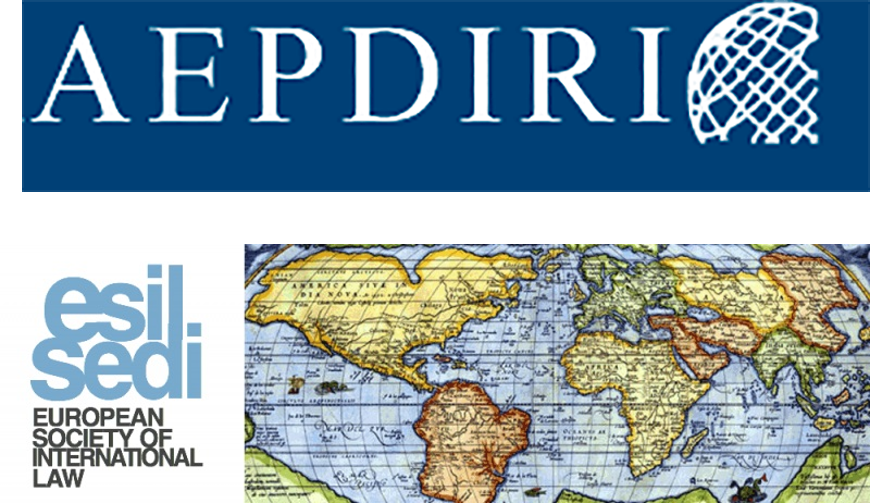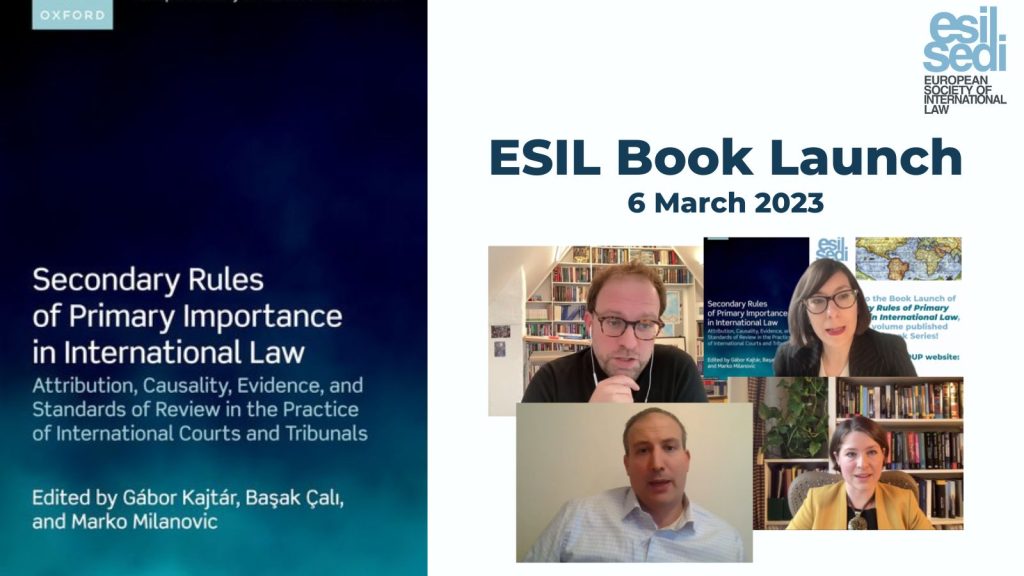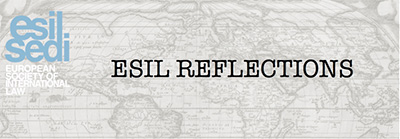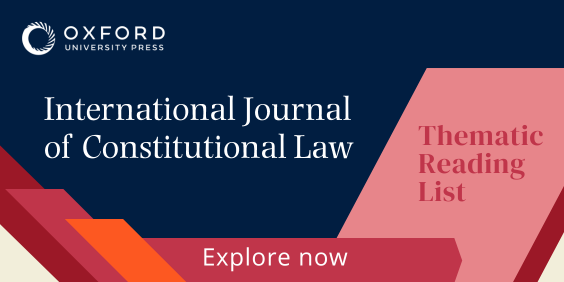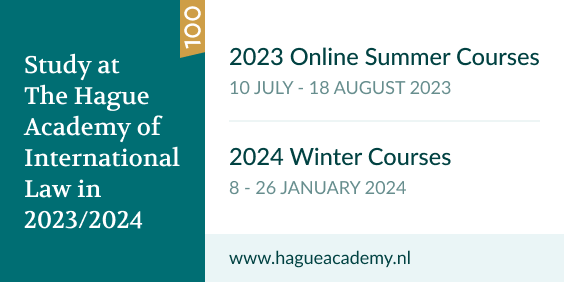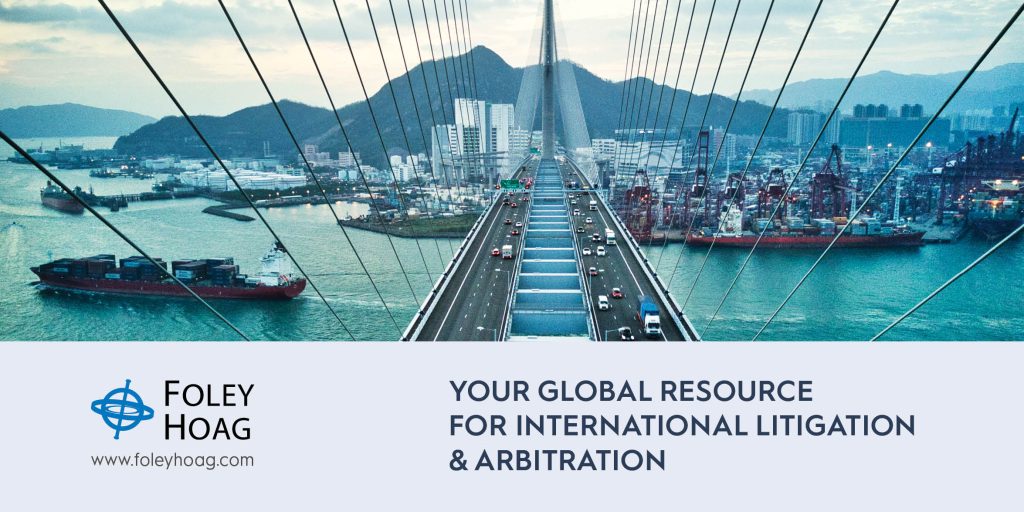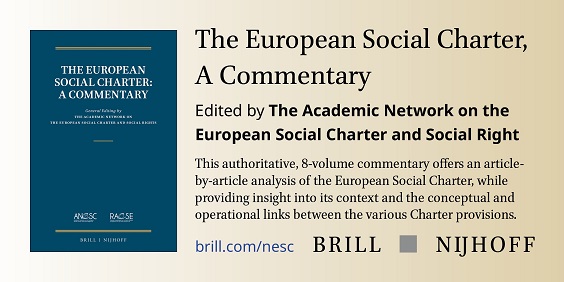ESIL Newsletter – Spring 2023
Editor: Inga Martinkute (Vilnius University)
 In this issue
In this issue
1. Message of the President

Dear ESIL Members,
Let’s talk about money.
ESIL relies entirely on its members to finance its activities. Individual members total approximately 1,300 annually. Our membership fees schedule offers a variety of options to join our Society—students (up to PhD level included) from no less than 136 countries can join for 20 EUR/year, while students based in wealthier nations may join for twice that price, i.e. a modest 3.33 EUR/month. Joining ESIL as an individual is possible on a yearly basis, on a 5-year basis, or also on a lifetime basis—an option so far preferred by our 47 patrons; we are extremely grateful for their enduring trust and mark of support.
In addition to individual members, the Society’s annual budget benefits from the indispensable contributions of our institutional members. The Society is also very grateful for their continued support; they are listed on our website. We often hear that more law firms should contribute to ESIL’s budget. We could not agree more. Despite our efforts (or maybe, thanks to them), only one US firm is currently an institutional member, the other institutional members being academic institutions and publishers. The Board would greatly appreciate the assistance of ESIL members who could help secure the affiliation of other law firms as our repeated invitations in that regard appear to fall on deaf ears. Being affiliated with the only institutional member law firm, my personal experience has taught me that nothing replaces personal connection in order to convince firms to join a learned Society which continues to be perceived (rightly or wrongly) as being very academic.
Pursuant to our Articles of Association, and upon the recommendation of the two dedicated ESIL members who form the Audit Committee each year, the General Assembly approves a financial report at each annual meeting. From those reports, we gather that ESIL’s average yearly membership income is roughly 135,000 EUR while our expenditures amount to nearly that sum. The largest expenditure is by far our contribution to the European University Institute for hosting and staffing our first-class Secretariat. Other expenses typically include: fees to OUP for the EJIL subscriptions requested by members; ESIL website management; travel grants, including for ECRs and for scholars who have to travel long distances; carers’ grants, offered to members with parental or other caring responsibilities; postage costs, including those relating to the ESIL book prizes; videoconferencing system; ad hoc financial support to local organizers faced with unprecedented expenses due to the pandemic, inflation, and hybrid technology; specific financial support and travel grants for certain joint events. Some expenses—in particular the travel grants and carers’ grants—are covered by the lifetime members’ fund. Any revenue not spent is, of course, carried forward to the following year. Having been in existence for more than 20 years, ESIL has accumulated a reasonable but not extravagant capital: the normal account and the lifetime membership fund currently amount to about 450,000 EUR. That sum may appear pretty large to an individual, but it would only cover about 6 years of existence with the same level of activities were our membership to drop by half. Good governance requires moderation in spending while at the same time making full and efficient use of the available funds.
As you can see, ESIL provides financial support to the local organizers of annual conferences only in very specific and exceptional circumstances, and such support represents only a tiny fraction of the total expenses of an annual conference, which amounted to an average of 128,000 EUR for the last five conferences. Hence, the need to collect conference fees to cover the numerous expenses that specific sponsorship alone cannot meet.
I hope you’ll appreciate this exercise of transparency and that the amounts mentioned above will not deter you from supporting your Society year after year. Thank you so much for your membership.
Pierre d’Argent
ESIL President
2. Guest Editorial by Crina Baltag: Bilateralisation of International Law and the Supremacy of Regional Law
With the European Union (EU) being at the forefront of the systemic changes in investor-State dispute settlement (ISDS), certain intra-EU developments, directly affecting ISDS, have reopened the discussion on regionalism versus multilateralism, as well as on the supremacy of regional law over international law and the rulemaking by supranational actors. Such intra-EU development is the recent case of Republic of Moldova v. Komstroy, before the Court of Justice of the European Union (CJEU).
Addressing the questions asked by the Paris Court of Appeal on the interpretation of the notion of ‘investment’ under Article 1(6) of the Energy Charter Treaty (ECT), the Advocate General on the CJEU, in Republic of Moldova v. Komstroy focused on the powers of the CJEU to interpret the provision of the ECT. The Advocate General emphasized the fact that the ECT is a treaty signed by and approved by the EU, and, as such, it is an international agreement that must be regarded as an act of the institutions of the EU, with the CJEU having jurisdiction to rule on the provisions of the ECT. Furthermore, the Advocate General found that the ECT does not establish any court or tribunal responsible for ensuring the uniform interpretation of its provisions, such as the CJEU, and that such interpretation is only made in the course of the settlement of disputes by various arbitral tribunals and therefore cannot avoid divergences of interpretation. In addition, and more importantly, while being a multilateral agreement, the ECT consists of a set of bilateral obligations between the Contracting Parties, including the EU and the Member States, and, in theory, those obligations could also govern, within the EU itself, relations between the Member States and, consequently, apply within the EU legal order. All these elements, in the opinion of the Advocate General, empowered the CJEU to interpret the provisions of the ECT.
The Advocate General’s opinion in Republic of Moldova v. Komstroy must be viewed in the context of the recent arbitrations against the Netherlands under the Convention on the Settlement of Investment Disputes between States and Nationals of Other States (ICSID Convention): RWE AG and RWE Eemshaven Holding II BV v. Kingdom of the Netherlands, and Uniper SE, Uniper Benelux Holding B.V. and Uniper Benelux N.V. v. Kingdom of the Netherlands. In the court proceedings brought before the German courts, where the Netherlands sought a declaratory judgment that the RWE and Uniper arbitrations were in breach of the CJEU Achmea judgment, the European Commission submitted in the Letter of 22 September 2021 that the EU Member States judges had the authority, under the principle of the supremacy of the EU law, to decide that the ICSID Convention was not applicable if they found it incompatible with the EU law.
The discussion about the supremacy of EU law over international law is not new in investment treaty arbitration. In early intra-EU arbitrations, such as Eastern Sugar B.V. v. The Czech Republic and Electrabel S.A. v. Hungary, the prevalence of EU law was argued by EU Member States and by the European Commission, intervening as amicus curiae in these arbitrations. In Micula v. Romania (I), there was also a friction between EU law and international law, as Romania was prevented from complying with the arbitral award because the European Commission considered that the payment of the amount awarded in favour of claimants was a breach of EU competition law. Up to that point, however, the tension between EU law and international law was limited to cases under bilateral investment treaties.
Republic of Moldova v. Komstroy and the subsequent RWE and Uniper cases started a new chapter on the debate on the supremacy of regional law over international law. Having already assumed its role in the interpretation of the ECT, the CJEU opened the door to assess the compatibility of the ICSID Convention with the EU law in the context of intra-EU investment disputes. Such approach is based on the ‘bilateralisation’ of a multilateral treaty. This was advanced by the Advocate General in Republic of Moldova v. Komstroy and confirmed by the European Commission in its Letter of 22 September 2021: a multilateral treaty becomes a “bundle of bilateral international obligations” between the respondent State and the investor’s home State.
Ultimately, such approach, in practice, will result in the suppression of international law and the enforcement of regional law between the members of a regional economic integration organization, such as the EU. Such a critical approach would be in stark breach of Article 27 of the Vienna Convention on the Law of Treaties which provides that a State “may not invoke the provisions of its internal law as justification for its failure to perform a treaty.” Arguably, the enforcement of EU law over international obligations would also put into question the legitimacy of Article 5 of the Treaty on European Union: among others, the use of EU competencies is governed by the principle of proportionality, i.e. the content and form of EU action shall not exceed what is necessary to achieve the objectives of the treaties.
3. Meet an ESIL member – Patrycja Grzebyk
 You can find the video introducing Dr Hab. Iur. Patrycja Grzebyk, Associate Professor at the University of Warsaw, ESIL Board member and editor-in-chief of the ESIL Reflections, here.
You can find the video introducing Dr Hab. Iur. Patrycja Grzebyk, Associate Professor at the University of Warsaw, ESIL Board member and editor-in-chief of the ESIL Reflections, here.
4. What’s Going On?
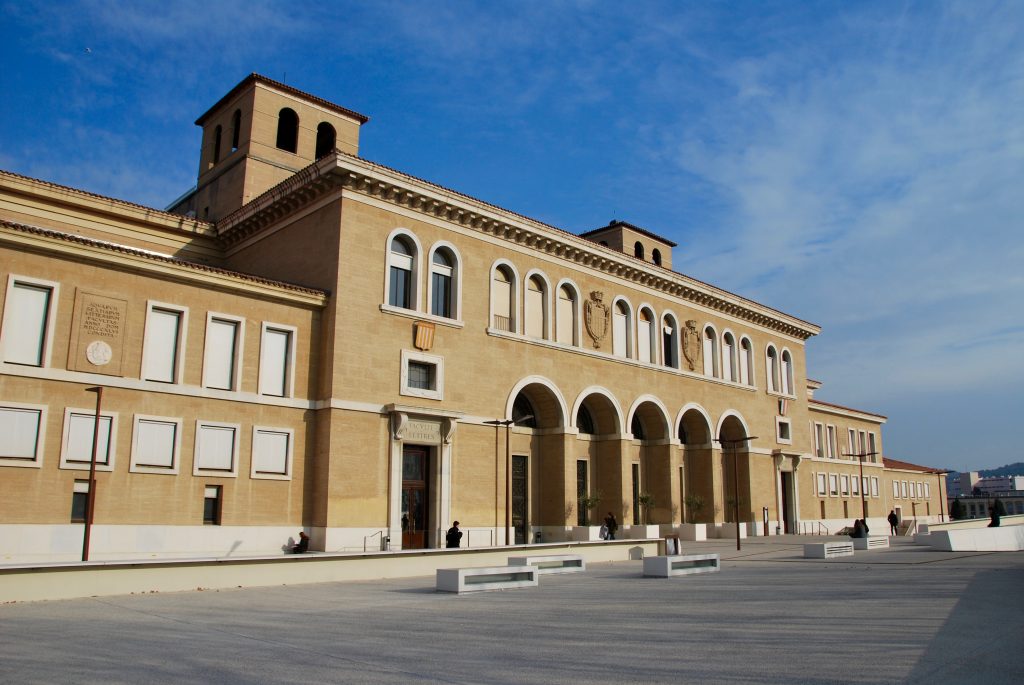 2023 ESIL Annual Conference in Aix-en-Provence – REGISTER NOW!
2023 ESIL Annual Conference in Aix-en-Provence – REGISTER NOW!
Is international law fair?
The 18th ESIL Annual Conference (31 August-2 September 2023) will be hosted by Aix-Marseille University in France. The Conference will be preceded by Interest Groups’ workshops to be held on 30 and 31 August.
Fairness is not a unidimensional concept. The same word may have different meanings or scopes depending on what region of the world we are in. Fairness can serve to elucidate important issues pertaining to the universality of legal concepts as well as to the evolution of international law and international society. The theme of the 18th Annual Conference of the ESIL also raises questions as to the values inherent in international law. Are the norms that constitute international law always inspired by ideas of justice and equity? How does one define justice, fairness and equity? Who has the legitimacy to assess international law’s fairness? And according to which criteria? Is the fairness of international law to be gauged based on its objectives, its contents, its consequences or the legal process? Should international law be fair? Can it even be? How influential are contemporary international law theories on the ‘epistemologies of the South’ (Sousa Santos)? And what lessons can be learned from past and current international crises such as the war in Ukraine, the COVID-19 pandemic, or inequality vis-à-vis the harmful consequences of climate change?
Please visit the conference website HERE. Registrations are now open! Register before 4 June 2023 to benefit from the early-bird fees.
 2023 ESIL Research Forum in Tartu
2023 ESIL Research Forum in Tartu
The next ESIL Research Forum will take place on 27-28 April 2023 at the University of Tartu in Estonia. The forum is entitled Regional Developments of International Law in Eastern Europe and Post-Soviet Eurasia. The research forum website is now available.
More than 60 mostly early-career scholars responded to the call for papers and 28 papers were selected. The final programme of the conference is now available here.
The conference will cover topics such as the implications of Russia’s war against Ukraine in international law, Russia’s departure from the Council of Europe and from under the jurisdiction of the European Court of Human Rights, regional integration in post-Soviet Eurasia, selected questions of international investment law and trade law in the region. The program will feature both papers with theoretical ambition as well as new empirical insights in relevant international law and practice.
ESIL-AEPDIRI Doctoral Workshop: International Law and International Relations as a Response to the Challenges of the New Globalization. Future Research in the Global Era
As part of the XXX Conference of the Spanish Association of Professors of International Law and International Relations, a doctoral workshop for European, African, and Latin American young researchers will be held on Wednesday 20 September 2023 at the University of Las Palmas de Gran Canaria.
Young doctoral researchers who wish to participate in the workshop should submit their proposal from April 15th to May 15th 2023. Upon receipt of the proposals, the Organizing Academic Committee will communicate the selection of proposals and the specific characteristics of the workshop to the proposers no later than June 19th 2023. Participation in the workshop is subject to their effective registration in the XXX Conference. AEPDIRI will support the participation of the selected doctoral candidates by providing financial assistance which will cover a minimum payment of 150€ for Spanish doctoral candidates, and additional support for African and Latin American doctoral candidates may be provided. Doctoral candidates from African Universities may apply for financial assistance from AEPDIRI and the European Society of International Law (ESIL) for a total of €500. More information here.
5. ESIL Series
The European Society of International Law Series publishes high-quality volumes on the themes of ESIL Annual Conferences and ESIL joint events. The volumes include chapters that are based on selected papers presented at ESIL events. The chapters may have been revised to fit the theme and focus of the volume, and may have been complemented by additional chapters that address topics that were not fully explored during the events but that are essential for a full coverage of the theme. Volumes in the Series will be subject to a double-blind review process by a high-level editorial board in cooperation with the Series editors, and will be published by Oxford University Press.
In November 2022, a new book was published: Secondary Rules of Primary Importance in International Law, edited by Gábor Kajtár, Başak Çali, and Marko Milanovic.
On 6 March 2023, a book launch of the volume took place online. The recording of the event is available here. Further details on the event are available here.
The focus of this edited volume is the often-overlooked importance of secondary rules of international law. Secondary rules of international law – such as attribution, causality, and the standard and burden of proof – have often been neglected in scholarly literature and have seen fragmented application in international legal practice. Yet the systemic nature of international law entails that coherent and consistent application of such rules is a key element in reinforcing the legitimacy of decisions of international courts and tribunals. The accelerated development of international law and international litigation, coupled with the fragmented nature of the adjudicatory terrain calls for theoretical scrutiny and systemic analysis of the developments in the judicial treatment of secondary rules.
Further books are in the pipeline, including an edited volume on ‘International Law and Universality’. For more information, incl. previously-published titles, please visit the Series webpage.
If you are interested in putting together a volume for inclusion in the series, please contact the General Editors, Christian J. Tams and Veronika Fikfak.
6. ESIL Paper Series
The ESIL Paper Series features papers presented at ESIL events (Annual Conferences, Research Forums, and Interest Group events). Publication in the ESIL Paper Series enables authors to disseminate their work widely and reach broader audiences without the usual delays involved in more traditional means of publication. It does not prevent the subsequent publication of papers in academic journals or edited collections.
The current Series editors are ESIL Board members Adriana Di Stefano, Federica Paddeu and Catharine Titi.
ESIL Papers will be included in the EUI CADMUS Research Repository. The Papers presented at the 2022 ESIL Research Forum in Glasgow are now available! These follow the previous ones presented at the 2021 ESIL Annual Conference in Stockholm and at the 2021 ESIL Research Forum in Catania.
The papers presented at the 2022 ESIL Annual Conference in Utrecht will be available soon.
For any enquiries or if you are interested in publishing in the ESIL Papers Series, please send an email to esil.papers@gmail.com.
NOTE: Papers presented at ESIL Conferences from 2011 to 2019 can be downloaded here.
7. ESIL Early-Career Network
In 2022 the Co-ordinating Committee of the ESIL Early-Career Network was nominated to liaise with the Board to promote the active engagement of emerging scholars and practitioners in ESIL’s activities and events and also spearhead a number of initiatives specifically of interest to the latter with the support of the Society. These may include organising side events during the ESIL Annual Conference, running sessions focused on professional skills development, and facilitating mentorship opportunities for early-career international lawyers.
If you are interested in the activities of the ESIL Early-Career Network, it is now possible to join the network and be added to their mailing list: to do so, please visit the online membership platform and log in to your personal account; from the tab “Account Information” you can then tick the checkbox “Join the ESIL Early-Career Network“.
The Committee is looking forward to keeping in touch with you!
8. ESIL Reflections
ESIL Reflections offer up-to-date reflections on current issues in international law. The Reflections cover a wide range of topics relating to current developments in international law and practice as well as theoretical reflections in a way that is relatively accessible to non-experts. The aim is to foster discussion between ESIL members and international law scholars and practitioners more generally – in Europe, but also beyond. ESIL Reflections are published on this website and distributed freely to ESIL members.
In March 2023 a new editorial board took over. The new editors are Patrycja Grzebyk (editor-in-chief), Lucas Lixinski, Alina Miron, Anne Saab and Peter-Tobias Stoll.
ESIL Reflections are short papers (3,000-4,000 words) that argue one particular point that may trigger further debate in the scientific community. Extensive referencing is to be avoided; references are only necessary in case of direct citations or when new or less well-known works are mentioned.
ESIL Members who have an interest in contributing are encouraged to do so. Please contact Patrycja Grzebyk (patrycja.grzebyk@uw.edu.pl) if you would like to contribute.
Copying and reprinting of ESIL Reflections is permitted with due acknowledgement. In such instances, please state: (parts of) this article first appeared as an ESIL Reflection (volume x, issue x), published by the European Society of International Law, www.esil-sedi.eu.
Latest publications are:
- Clearing up the Space Junk: On the Flaws and Potential of International Space Law to Tackle the Space Debris Problem by Yannick Radi
- Maximising Investment Protection under the Minimum Standard: A Case Study of the Evolutive Interpretation and Application of Customary International Law in Investment Arbitration by Johannes Hendrik Fahner
9. News from Interest Groups
 ESIL Interest Groups are a vital part of the Society’s success and activities. A list of the groups is available on the ESIL website.
ESIL Interest Groups are a vital part of the Society’s success and activities. A list of the groups is available on the ESIL website.
Interest Group on International Economic Law
We are happy to welcome you at the IG’s workshop on “Regional Developments of International Economic Law in the Eurasian Region in Times of Geoeconomic Fragmentation” at the 2023 ESIL Research Forum that will be held on 25 April 2023. The programme of the event is now available here.
We are also planning other events: check regularly the IG’s webpage and follow us on Twitter!
Interest Group on Peace and Security
We invite you to join our online pre-conference workshop at the ESIL Research Forum in Tartu on Monday 24 April on “The Changing Perceptions of the Use of Force in the Contemporary World“. The full programme for our workshop is available here and you can register here.


